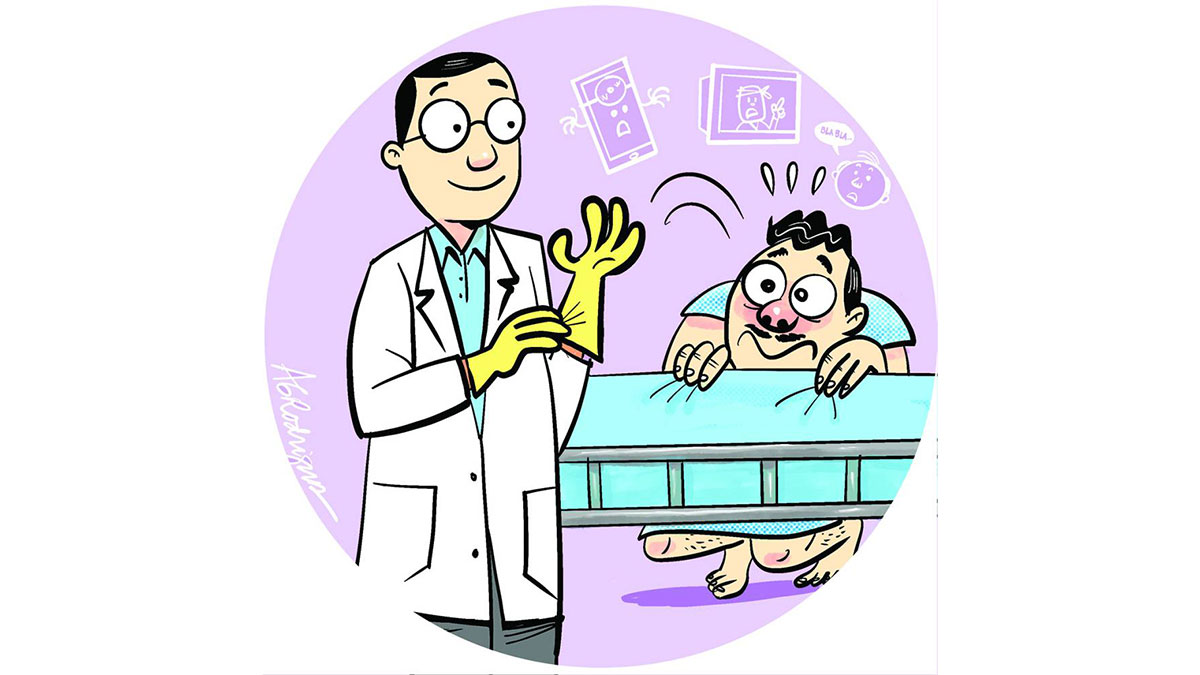In a recent webinar, I was asked if it’s safe to have sex during this pandemic.
I was flabbergasted for a few seconds, then, without meaning to be epigrammatic, I replied, “COVID-19 (new coronavirus disease) may be a public health emergency, but abstaining from sexual intimacy completely is a public health catastrophe.”
I clarified that, theoretically, we should remain in quarantine until the pandemic is over, but that is simply not sustainable. Same thing with having sex—theoretically, we should avoid sex until there’s no more risk of getting the virus through kissing and intimacy, but that is simply not possible and sustainable, too. The implications for both partners’ emotional and mental health could be more serious than the risk of catching the coronavirus through sex.
Although one published paper suggested that the SARS-CoV-2 virus was isolated in the semen of some patients who had COVID-19, this was not validated in other studies. It doesn’t seem like COVID-19 is a sexually transmitted disease, in the same manner as HIV-AIDS or gonorrhea are.
But, as has been established, COVID-19 can be transmitted from droplet infections such as from the saliva, mucus or even the breath of infected individuals, including those who are asymptomatic or are in the presymptomatic phase of the disease. Lovers can always get creative, but there’s no way they could engage in sex without violating the physical distancing guideline. There are some pointers, though, that one may observe.
Familiar partner, familiar place
1. Have sex only with your spouse or the partner you’re living with, and in the privacy of your bedroom. In short, familiar partner, familiar place. You’re more certain of the exposure history of your partner. You can also review your checklist of symptoms—did either of you have fever, cough, sore throat, shortness of breath, muscle pains, weakness, loss of smell and taste, diarrhea in the last two weeks? If there’s none, and also no reason to suspect that he/she might have been exposed to a COVID-19 patient, the coast is clear for romantic sailing.2. Practice hygiene before and immediately after sex. Soap twice all parts of the body, especially intimate parts. I guess you can also sing the “Happy Birthday” song twice to make sure any remaining virus on the body is killed with at least a 20-second exposure to soap lather.
3. Gargle with standard antiseptic mouthwash which could hopefully kill small colonies of virus just starting to settle down in the oral mucosa.
4. Avoid kissing. That’s the single act of intimacy that can up the risk a dozen times. It can easily pass the virus—not just a few, but colonies of the virus.
5. Avoid kinky sex, especially with the use of props or accessories. Stay within sexual norms. This pandemic is too abnormal already, and there’s no room for additional abnormalities in sexual intimacy.
Face masks
6. Strongly consider wearing face masks during sex. The heavy breathing and panting accelerate the velocity of transmission of the coronavirus, if present in one partner. Wearing a reliable face mask that covers the nose and mouth can significantly minimize the risk. Wearing the usual surgical face mask may be a big turnoff. There are now fashionable and relatively sexy-looking face masks made of suitable fabric to protect from potential transmission of the virus. Well, for those with kinky tendencies, this would be a good alternative, which is protective at the same time.
7. Safe sexual positions could require some creativity. The goal is to prevent face-to-face contact. However, avoid putting pillows in between faces—it could smother the partner.
8. Postintimacy cuddling may be done, but keep the face masks on.
9. If you have a cardiac condition (history of recent heart attack, heart failure, etc.), ask your physician first if you can already engage in sex. Generally, though, if you can go up a flight of stairs, or walk 200 meters without experiencing chest tightness or shortness of breath, it should be safe to have conventional sex. Again, it must be with a familiar partner, and in a familiar place to avoid undue stress caused by the “unfamiliarity factor.”
10. Finally, for those who would like to be intimate with their partner but can’t get over their fear of the virus, they could try sexual arousal techniques that don’t involve physical contact, or, at most, just holding hands while telling each other sweet nothings.
So long as proper precautions are taken, the risk of catching the coronavirus during sex is not really threateningly high. And if you consider the emotional and mental dividends, the risk-benefit balance tilts heavily toward the benefits of intimacy. INQ













































